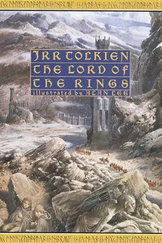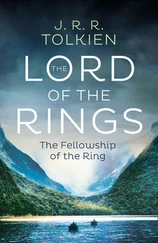J Tolkien - The Silmarillon
Здесь есть возможность читать онлайн «J Tolkien - The Silmarillon» весь текст электронной книги совершенно бесплатно (целиком полную версию без сокращений). В некоторых случаях можно слушать аудио, скачать через торрент в формате fb2 и присутствует краткое содержание. Год выпуска: 1985, ISBN: 1985, Издательство: Del Rey, Жанр: Эпическая фантастика, на английском языке. Описание произведения, (предисловие) а так же отзывы посетителей доступны на портале библиотеки ЛибКат.
- Название:The Silmarillon
- Автор:
- Издательство:Del Rey
- Жанр:
- Год:1985
- ISBN:0345325818
- Рейтинг книги:5 / 5. Голосов: 1
-
Избранное:Добавить в избранное
- Отзывы:
-
Ваша оценка:
- 100
- 1
- 2
- 3
- 4
- 5
The Silmarillon: краткое содержание, описание и аннотация
Предлагаем к чтению аннотацию, описание, краткое содержание или предисловие (зависит от того, что написал сам автор книги «The Silmarillon»). Если вы не нашли необходимую информацию о книге — напишите в комментариях, мы постараемся отыскать её.
Those interested in J.R.R. Tolkien's Middle Earth should not be without this grand volume that tells the tragic tale of the struggle for control of the Silmarils, a struggle that would determine the history of the world long before the War of the Ring.
The Silmarillon — читать онлайн бесплатно полную книгу (весь текст) целиком
Ниже представлен текст книги, разбитый по страницам. Система сохранения места последней прочитанной страницы, позволяет с удобством читать онлайн бесплатно книгу «The Silmarillon», без необходимости каждый раз заново искать на чём Вы остановились. Поставьте закладку, и сможете в любой момент перейти на страницу, на которой закончили чтение.
Интервал:
Закладка:
‘It is indeed unhappy,’ said Miriel, 'and I would weep, if I were not so weary. But hold me blameless in this, and in all that may come after.’
She went then to the gardens of Lorien and lay down to sleep; but though she seemed to sleep, her spirit indeed departed from her body, and passed in silence to the halls of Mandos. The maidens of Este tended the body of Miriel, and it remained unwithered; but she did not return. Then Finwe lived in sorrow; and he went often to the gardens of Lorien, and sitting beneath the silver willows beside the body of his wife he called her by her names. But it was unavailing; and alone in all the Blessed Realm he was deprived of joy. After a while he went to Lorien no more.
An his love he gave thereafter to his son; and Feanor grew swiftly, as if a secret fire were kindled within him. He was tall, and fair of face, and masterful, his eyes piercingly bright and his hair raven-dark; in the pursuit of all his purposes eager and steadfast. Few ever changed his courses by counsel, none by force. He became of all the Noldor, then or after, the most subtle in mind and the most skilled in hand. In his youth, bettering the work of Rumil, he devised those letters which bear his name, and which the Eldar used ever after; and he it was who, first of the Noldor, discovered how gems greater and brighter than those of the earth might be made with skill. The first gems that Feanor made were white and colourless, but being set under starlight they would blaze with blue and silver fires brighter than Helluin; and other crystals he made also, wherein things far away could be seen small but clear, as with the eyes of the eagles of Manwe. Seldom were the hands and mind of Feanor at rest.
While still in his early youth he wedded Nerdanel, the daughter of a great smith named Mahtan, among those of the Noldor most dear to Aule; and of Mahtan he learned much of the making of things in metal and in stone. Nerdanel also was firm of will, but more patient than Feanor, desiring to understand minds rather than to master them, and at first she restrained him when the fire of his heart grew too hot; but his later deeds grieved her, and they became estranged.
Seven sons she bore to Feanor; her mood she bequeathed in part to some of them, but not to all.
Now it came to pass that Finwe took as his second wife Indis the Fair. She was a Vanya, close kin of Ingwe the High King, golden-haired and tall, and in all ways unlike Miriel. Finwe loved her greatly, and was glad again. But the shadow of Miriel did not depart from the house of Finwe, nor from his heart; and of all whom he loved Feanor had ever the chief share of his thought.
The wedding of his father was not pleasing to Feanor; and he had no great love for Indis, nor for Fingolfin and Finarfin, her sons. He lived apart from them, exploring the land of Aman, or busying himself with the knowledge and the crafts in which he delighted. In those unhappy things which later came to pass, and in which Feanor was the leader, many saw the effect of this breach within the house of Finwe, judging that if Finwe had endured his loss and been content with the fathering of his mighty son, the courses of Feanor would have been otherwise, and great evil might have been prevented; for the sorrow and the strife in the house of Finwe is graven in the memory of the Noldorin Elves.
But the children of Indis were great and glorious, and their children also; and if they had not lived the history of the Eldar would have been diminished.
Now even while Feanor and the craftsmen of the Noldor worked with delight, foreseeing no end to their labours, and while the sons of Indis grew to their full stature, the Noontide of Valinor was drawing to its close. For it came to pass that Melkor, as the Valar had decreed, completed the term of his bondage, dwelling for three ages in the duress of Mandos, alone. At length, as Manwe had promised, he was brought again before the thrones of the Valar. Then he looked upon their glory and their bliss, and envy was in his heart; he looked upon the Children of Iluvatar that sat at the feet of the Mighty, and hatred filled him; he looked upon the wealth of bright gems, and he lusted for them; but he hid his thoughts, and postponed his vengeance.
Before the gates of Valmar Melkor abased himself at the feet of Manwe and sued for pardon, vowing that if he might be made only the least of the free people of Valinor he would aid the Valar in all their works, and most of all in the healing of the many hurts that he had done to the world. And Nienna aided his prayer; but Mandos was silent Then Manwe granted him pardon; but the Valar would not yet suffer him to depart beyond their sight and vigilance, and he was constrained to dwell within the gates of Valmar. But fair-seeming were all the words and deeds of Melkor in that time, and both the Valar and the Eldar had profit from his aid and counsel, if they sought it; and therefore in a while he was given leave to go freely about the land, and it seemed to Manwe that the evil of Melkor was cured.
For Manwe was free from evil and could not comprehend it, and he knew that in the beginning, in the thought of Iluvatar, Melkor had been even as he; and he saw not to the depths of Melkor’s heart, and did not perceive that all love had departed from him for ever. But Ulmo was not deceived, and Tulkas clenched his hands whenever he saw Melkor his foe go by; for if Tulkas is slow to wrath he is slow also to forget. But they obeyed the judgement of Manwe; for those who will defend authority against rebellion must not themselves rebel.
Now in his heart Melkor most hated the Eldar, both because they were fair and joyful and because in them he saw the reason for the arising of the Valar, and his own downfall. Therefore all the more did he feign love for them and seek their friendship, and he offered them the service of his lore and labour in any great deed that they would do. The Vanyar indeed held him in suspicion, for they dwelt in the light of the Trees and were content; and to the Teleri he gave small heed, thinking them of little worth, tools too weak for his designs. But the Noldor took delight in the hidden knowledge that he could reveal to them; and some hearkened to words that it would have been better for them never to have heard. Melkor indeed declared afterwards that Feanor had learned much art from him in secret, and had been instructed by him in the greatest of all his works; but he lied in his lust and his envy, for none of the Eldalie ever hated Melkor more than Feanor son of Finwe, who first named him Morgoth; and snared though he was in the webs of Melkor's malice against the Valar he held no converse with him and took no counsel from him. For Feanor was driven by the fire of his own heart only, working ever swiftly and alone; and he asked the aid and sought the counsel of none that dwelt in Aman, great or small, save only and for a little while of Nerdanel the wise, his wife.
Chapter 7
Of the Silmarils and the Unrest of the Noldor In that time were made those things that afterwards were most renowned of all the works of the Elves. For Feanor, being come to his full might, was filled with a new thought, or it may be that some shadow of foreknowledge came to him of the doom that drew near; and he pondered how the light of the Trees, the glory of the Blessed Realm, might be preserved imperishable. Then he began a long and secret labour, and he summoned all his lore, and his power, and his subtle skill; and at the end of all he made the Silmarils.
As three great Jewels they were in form. But not until the End, when Feanor shall return who perished ere the Sun was made, and sits now in the Halls of Awaiting and comes no more among his kin; not until the Sun passes and the Moon falls, shall it be known of what substance they were made. Like the crystal of diamonds it appeared, and yet was more strong than adamant, so that no violence could mar it or break it within the Kingdom of Arda. Yet that crystal was to the Silmarils but as is the body to the Children of Iluvatar: the house of its inner fire, that is within it and yet in all parts of it, and is its life. And the inner fire of the Silmarils Feanor made of the blended light of the Trees of Valinor, which lives in them yet, though the Trees have long withered and shine no more. Therefore even in the darkness of the deepest treasury the Silmarils of their own radiance shone like the stars of Varda; and yet, as were they indeed living things, they rejoiced in light and received it and gave it back in hues more marvellous than before.
Читать дальшеИнтервал:
Закладка:
Похожие книги на «The Silmarillon»
Представляем Вашему вниманию похожие книги на «The Silmarillon» списком для выбора. Мы отобрали схожую по названию и смыслу литературу в надежде предоставить читателям больше вариантов отыскать новые, интересные, ещё непрочитанные произведения.
Обсуждение, отзывы о книге «The Silmarillon» и просто собственные мнения читателей. Оставьте ваши комментарии, напишите, что Вы думаете о произведении, его смысле или главных героях. Укажите что конкретно понравилось, а что нет, и почему Вы так считаете.












